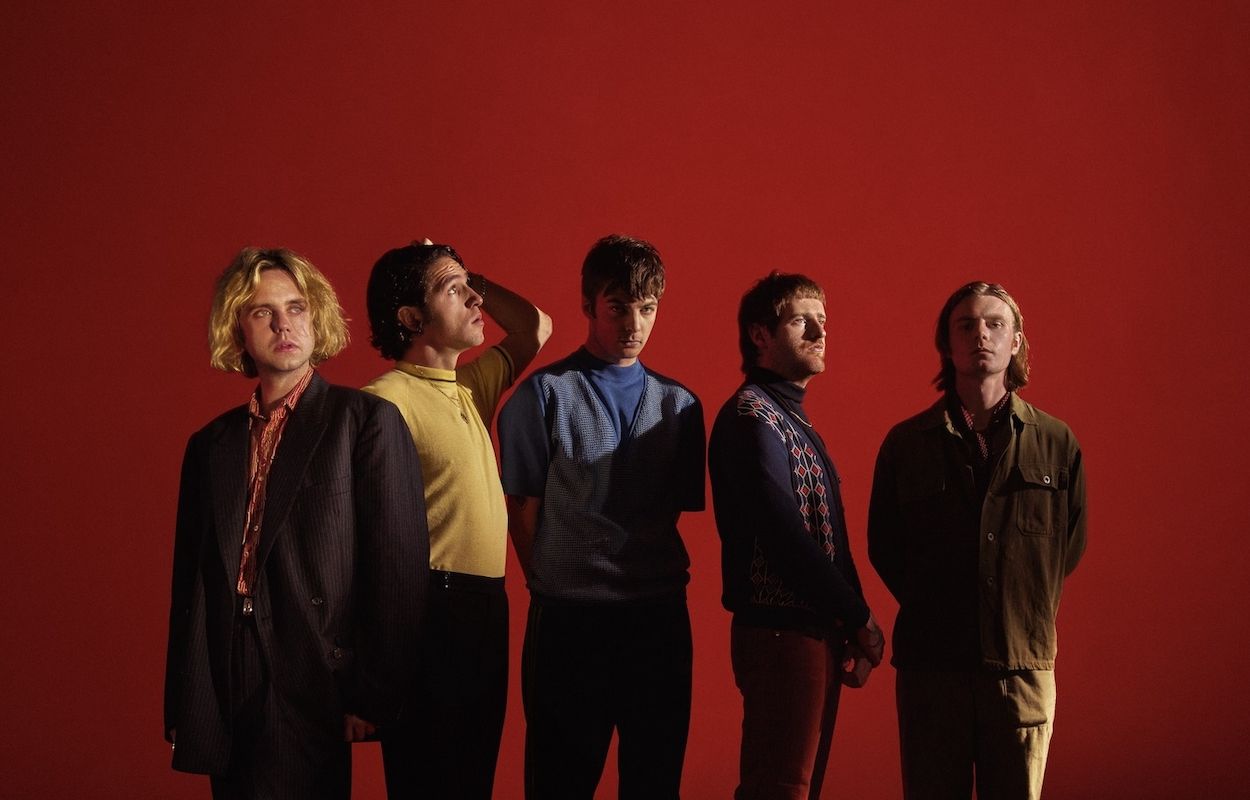"Skinty Fia" is a step forward for Fontaines D.C., but hopefully not their destination
by Archie O'Connell
2022-05-09

In 2019, Grian Chatten shouted “My childhood was small / But I’m gonna be big,” on the first song of Fontaines D.C’s debut album, Dogrel. A tongue-in-cheek reference to both the disingenuity of many modern punk artists in their attempts to capitalize off of counterculture, and a note of defiance towards England’s attempts to minimize Ireland’s history and culture, the catchy chorus made it perfectly clear who and what Fontaines D.C is all about. Dogrel captured the ears and hearts of the world stage, and launched Fontaines into post-punk/garage rock stardom. It was voted album of the year by BBC Radio 6, landing the band a spot on The Tonight Show Starring Jimmy Fallon, and setting them off on a fifty-state tour.
Despite the great success and acclaim that Dogrel and sophomore album A Hero’s Death brought the band, they were gripped with the same crises that every other modern post-punk band seems to be experiencing – a biting need to grow and evolve past their basic genre labels, even if it means completely changing their sound. Indeed, in an interview with NME, Chatten admitted that one goal of the band was to “unlearn the sounds of ‘Dogrel’ … probably throw away the guitars eventually.” So, just three years after their debut, Fontaines D.C released Skinty Fia, an album with an almost completely shifted approach to rock ‘n’ roll. As opposed to their first two projects’ erratic drums, contorted guitar riffs, and hollered vocals, Skinty Fia’s instrumentation is carefully arranged into dark and hypnotic loops, while Chatten sings with a bit more of a deliberate drawl. At some moments, the album feels more like a gloomy take on Coldplay’s Parachutes than anything post-punk. The lyrics, while occasionally dry, deal with heavy political issues, especially those centering around the struggles of attempting to maintain an Irish identity while living in England.
The first track, titled “In ár gCroíthe go deo,” begins with a simple repetitive bassline – a veritable post-punk essential. However, the notes are subdued and quiet, as opposed to the loud show-stealer basslines popularized by other U.K. post-punk bands such as Yard Act or Dry Cleaning. Within seconds, Chatten begins singing the title of the song in a sustained harmony with himself, as a guitar and more vocal layers slowly begin to come in. After two minutes of haunting vocal loops, the drums finally come in, driving the listener forward with a dark, yet still subdued force. The song references a controversial ruling by the Church of England in mid-2020, in which a woman wished to have the phrase “In ár gCroíthe go deo” written on her gravestone, but was denied by a court judge. “In ár gCroíthe go deo” means “in our hearts forever” in the Irish language, and the Church was afraid that there was a “risk that the phrase would be regarded as some form of slogan or that its inclusion without translation would of itself be seen as a political statement.” Many Irish people were horribly offended by such a ruling, seeing it for what it is – blatant xenophobia. To ban a phrase from being used without an accompanying translation on the basis that just the use of a language is enough to be a controversial political message is a serious affront to a people, one which horrified Chatten, and the turmoil he feels is clearly expressed.
Further songs, such as “Jackie Down the Line,” “Roman Holiday,” and “I Love You” deal with other Irish-English experiences, such as a feeling of loss of Irishness when placed in a different environment, the bonds that Chatten formed with his fellow kinfolk while attempting to acclimate to living in England, and frustration with the corruption and grief that he feels has taken over modern-day Ireland. While the songs’ lyrical content is very powerful, bringing harsh light to a generally unexplored topic in modern popular media, the instrumental music itself is unfortunately frequently dreary. While the steady drums and swirling vocal harmonies almost immediately bring the listener into a trance, very few songs ever build up to a climax strong enough to rip one out of that daze. The result is an album that can be very easily listened to all the way through without really having to pay any attention – optimal for ambience, not so much for rock. While the experimentation towards the new sound that could almost be called shoegaze-y is exciting, I’m not sure if it’s paying off just yet. While songs like Bloomsday have exciting payoffs near the end, as every element that had been developed over the course of the song comes together for one exciting sendoff, others such as “Big Shot” or “How Cold Love Is” are unfortunately repetitive, dark, and boring.
With Fontaines’ talk of experimenting and developing their sound, Skinty Fia feels like a pit stop – an update to let the world know how they’re doing and what direction they’re moving in, but hopefully not their destination.
